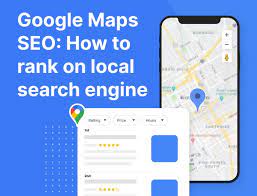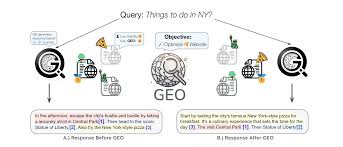The Importance of SEO On-Page Optimization
Search Engine Optimization (SEO) is a critical component of any successful digital marketing strategy. While off-page SEO tactics like link building are essential, on-page optimization plays a crucial role in improving your website’s visibility and ranking on search engine results pages (SERPs).
What is On-Page Optimization?
On-page optimization refers to the process of optimizing individual web pages to rank higher and earn more relevant traffic in search engines. It involves optimizing various elements on your website to make it more user-friendly and search engine-friendly.
Key Elements of On-Page Optimization
Some key elements of on-page optimization include:
- Title Tags: Creating unique and descriptive title tags for each page.
- Meta Descriptions: Writing compelling meta descriptions that summarize the page content.
- Heading Tags: Using proper heading tags (H1, H2, H3) to structure your content.
- Keyword Placement: Strategically placing relevant keywords throughout the content.
- Optimized Images: Using descriptive file names and alt text for images.
- User-Friendly URLs: Creating SEO-friendly URLs that are easy to read and understand.
- Internal Linking: Linking to other relevant pages within your website.
- Mobile Responsiveness: Ensuring your website is optimized for mobile devices.
The Benefits of On-Page Optimization
Effective on-page optimization can lead to several benefits, including:
- Better Search Engine Rankings: Optimizing your web pages can help search engines better understand your content, leading to improved rankings.
- Increase in Organic Traffic: By optimizing for relevant keywords, you can attract more organic traffic to your website.
- Improved User Experience: A well-optimized website provides a better user experience, leading to higher engagement and conversions.
- Faster Loading Speeds: Optimizing images and code can improve your site’s loading speed, which is crucial for both users and search engines.
In Conclusion
In conclusion, on-page optimization is a fundamental aspect of SEO that should not be overlooked. By implementing best practices and optimizing key elements on your website, you can enhance its visibility, attract more organic traffic, and ultimately achieve better results in search engine rankings. Remember that continuous monitoring and refinement of your on-page SEO efforts are essential for long-term success in the digital landscape.
Top 5 Benefits of On-Page SEO Optimization for Your Website
- Improved search engine rankings
- Increased organic traffic
- Enhanced user experience
- Faster loading speeds
- Better targeting of relevant keywords
The Challenges of On-Page SEO: Navigating Time, Expertise, and Algorithm Shifts
- Time-Consuming
- Constant Monitoring
- Limited Impact
- Technical Expertise Needed
- Over-Optimization Risk
- Algorithm Changes
Improved search engine rankings
Improved search engine rankings are a significant benefit of SEO on-page optimization. By strategically optimizing key elements such as title tags, meta descriptions, and keyword placement, websites can enhance their visibility and relevance in search engine results pages. This increased visibility can lead to higher organic traffic and better positioning in search results, ultimately driving more qualified leads and potential customers to the website. Effective on-page optimization is essential for businesses looking to improve their online presence and compete effectively in today’s digital landscape.
Increased organic traffic
One of the significant benefits of SEO on-page optimization is the potential for increased organic traffic to your website. By strategically optimizing your web pages with relevant keywords, meta descriptions, and other on-page elements, you can attract more visitors from search engines like Google. This organic traffic is valuable as it consists of users actively searching for products, services, or information related to your business, increasing the likelihood of higher engagement and conversions. Effective on-page optimization can help improve your website’s visibility in search results, driving more qualified traffic and ultimately contributing to the growth and success of your online presence.
Enhanced user experience
Enhanced user experience is a significant benefit of SEO on-page optimization. By structuring content effectively, optimizing images and improving page loading speeds, websites become more user-friendly and engaging for visitors. When users can easily navigate a website, find relevant information, and have a seamless browsing experience, they are more likely to stay longer on the site, interact with the content, and ultimately convert into customers or leads. Prioritizing user experience through on-page optimization not only improves SEO performance but also fosters positive interactions with visitors, leading to higher satisfaction and retention rates.
Faster loading speeds
Faster loading speeds, a key benefit of SEO on-page optimization, significantly enhance user experience and contribute to higher search engine rankings. By optimizing images, code, and other elements on a website, loading times can be reduced, leading to improved site performance and increased user engagement. Websites that load quickly not only satisfy visitors but also align with search engines’ preference for delivering fast and efficient results to users. Prioritizing faster loading speeds through on-page optimization is essential for creating a positive online experience and maximizing the potential for organic traffic growth.
Better targeting of relevant keywords
Better targeting of relevant keywords is a significant advantage of SEO on-page optimization. By strategically placing relevant keywords throughout your website’s content, meta tags, and headings, you can improve search engine visibility and attract more qualified traffic. This targeted approach ensures that your website appears in search results when users are actively searching for products or services related to your business, increasing the likelihood of driving valuable organic traffic and potential conversions.
Time-Consuming
On-page optimization, while crucial for improving search engine rankings, has its drawbacks, one of which is its time-consuming nature. This aspect of SEO demands meticulous attention to detail and thorough analysis of various elements on a website, such as title tags, meta descriptions, keyword placement, and content structure. Implementing these optimizations effectively can be a time-intensive process that may require continuous monitoring and adjustments to achieve desired results. Despite the time investment required, the benefits of enhanced visibility and user experience often outweigh the challenges posed by the time-consuming nature of on-page optimization efforts.
Constant Monitoring
Constant monitoring is a significant challenge when it comes to SEO on-page optimization. SEO best practices are constantly evolving, with search engine algorithms regularly updated to provide users with the most relevant and high-quality content. This means that website owners and digital marketers need to stay vigilant and adapt their strategies to meet these changing requirements. Continuous monitoring and updates are necessary to ensure that your on-page optimization efforts remain effective and in line with the latest SEO trends, making it a time-consuming but crucial aspect of maintaining a successful online presence.
Limited Impact
Limited Impact: On-page optimization alone may not be sufficient to achieve high search engine rankings; off-page factors also play a significant role. While optimizing individual web pages is crucial for improving search visibility, the impact of on-page optimization can be limited without addressing off-page factors such as backlinks, social signals, and domain authority. To achieve sustainable and competitive rankings in search engine results pages, a holistic approach that combines both on-page and off-page SEO strategies is essential. By focusing solely on on-page optimization, websites may struggle to reach their full potential in terms of organic traffic and search engine visibility.
Technical Expertise Needed
Some aspects of on-page optimization, such as optimizing website code, pose a significant challenge for website owners who lack technical expertise. This can be a major hurdle for those looking to improve their SEO performance, as understanding and implementing complex technical optimizations may be beyond their skill set. Without the necessary knowledge or resources to tackle these technical aspects effectively, website owners may struggle to fully optimize their web pages for search engines, potentially hindering their ability to achieve desired rankings and visibility online.
Over-Optimization Risk
One significant con of SEO on-page optimization is the risk of over-optimization. When content is excessively optimized for search engines, there is a danger of engaging in keyword stuffing, where keywords are unnaturally forced into the content. This practice not only violates search engine guidelines but also diminishes the quality of the content, making it less valuable and engaging for users. As a result, over-optimization can have a detrimental effect on user experience, potentially leading to decreased engagement and higher bounce rates on the website. It is crucial to strike a balance between optimizing for search engines and creating high-quality, user-friendly content to avoid this pitfall in SEO strategies.
Algorithm Changes
One significant drawback of SEO on-page optimization is the constant evolution of search engine algorithms. Search engines frequently update their algorithms to provide users with more relevant and high-quality search results. However, these changes can pose a challenge for website owners and digital marketers trying to stay current with the latest on-page optimization strategies. Adapting to algorithm changes requires continuous monitoring, testing, and adjustments to ensure that your website remains optimized for search engines, highlighting the dynamic nature of SEO practices in response to evolving algorithms.




